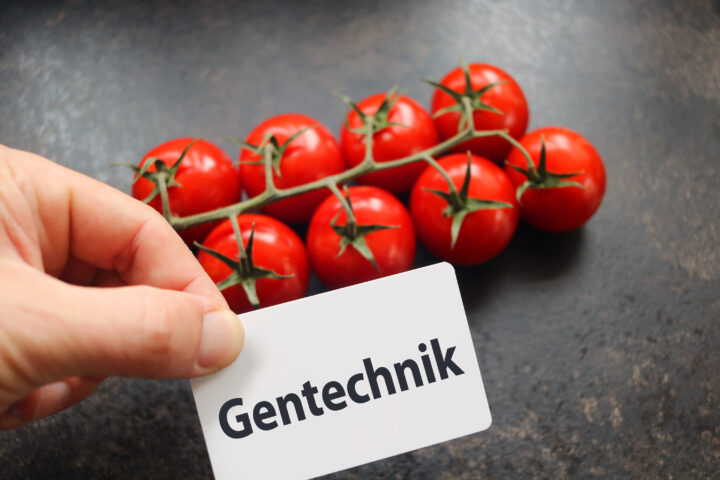
Industry-funded research increases the yields of important crop plants
Grains such as rice, wheat, and corn provide the majority of the calories consumed across the globe. Crop plants such as tef or cassava, on the other hand, have previously been rather overlooked. However, research progress has now made cultivating them a more attractive prospect. This is particularly important given climate change.
Wednesday, January 11, 2023
The three grain varieties rice, corn, and wheat provide around 50 percent of all the calories consumed by humans. They play a key role on the global market, where, by contrast, “orphan crops”—crop plants that have been rather neglected by research and farming—have never been able to establish a foothold. These include plants such as tef (also known as Williams lovegrass) and cassava (also known as manioc or yuca). Many “orphan crops” are grown in developing countries, where they play an important role in ensuring food security. As “NZZ am Sonntag” reports, they could become even more important thanks to intensive research.
Higher yields thanks to new varieties
Tef and cassava have few requirements for their environment. The plants grow in poor, dry soils and are relatively resilient to environmental influences. They are also rich in nutrients such as zinc or iron. However, one issue is their low yields, which have for a long time made growing tef and cassava an unattractive prospect. Breeding new varieties is a key factor in increasing yields, as a new tef variety is demonstrating according to “NZZ am Sonntag”. “Tef has a low glycemic index and does not contain any gluten, which is why demand is increasing on a global scale”, explained Ethiopian-born biologist Zerihun Tadele from the University of Bern, who has been researching and improving tef for nearly two decades as part of the Tef Improvement Project, funded by industry foundations. Shorter and stronger stalks make the plant more robust. Innovations have enabled yields in Ethiopia, tef’s country of origin, to be increased from 1.7 tons to 3 tons per hectare. This matches the average yield achieved by wheat in the same country.
“The method offering the simplest route to the desired goal”
“Orphan crops” are primarily grown in the Global South, where populations are likely to increase the most sharply over the coming decades. However, locally established plants such as tef and also cassava must achieve higher, more reliable yields to increase regional supply security. This requires research. Cassava feeds around a billion people. The plant can tolerate dry conditions and even thrives in poor soils, but is vulnerable to viral diseases.
ETH professor emeritus Wilhelm Gruissem and his team used genome analyses to discover a resistance gene to the cassava mosaic virus: “The gene, together with the CRISPR/Cas genetic scissors, could be used to perform precise edits to obtain resistant plants”, Gruissem explained to “NZZ am Sonntag”. However, genome analysis of “orphan crops” is significantly less advanced. Openness is required in order to achieve results. “When breeding plants, we need to choose the method that will offer the simplest route to the desired goal… without ideology”, Gruissem said. These breakthroughs were made possible by various foundations, namely the Bill & Melinda Gates Foundation for cassava and the Syngenta Foundation for tef.
Sources
NZZ am Sonntag (Magazin), 8 January 2023
Kindly note:
We, a non-native editorial team value clear and faultless communication. At times we have to prioritize speed over perfection, utilizing tools, that are still learning.
We are deepL sorry for any observed stylistic or spelling errors.
Related articles

ARTE documentary: Genetic engineering in organic farming?
The ARTE documentary “Genetic engineering in organic farming?” examines key controversial questions of modern agriculture: Is the general exclusion of new breeding technologies still up to date? Can the resistance of organic farming be justified scientifically?

The Great Suffering of Farmers
Fire blight, Japanese beetles, or grapevine yellows – farmers in Valais, too, are increasingly feeling helpless in the face of the threats posed by nature. More and more often, they lack the means to effectively protect their crops. This makes it all the more important for the Federal Council to place a pragmatic balancing of interests at the forefront when setting threshold values.

'Tomatoes on your eyes'
The submitted “Food Protection Initiative” calls for “GMO-free food.” Leaving aside this illusory demand, its adoption would mean more bureaucracy, more trade barriers, and less innovation. The Swiss Farmers’ Union describes the proposal as “unnecessary” and warns of a setback to the goal of achieving an even more sustainable agriculture.

How our daily lives end up in the water
When residues in our waters are discussed, agriculture is often portrayed as the main culprit. Yet a closer look shows that the sources are diverse and often much closer to everyday life than assumed.

